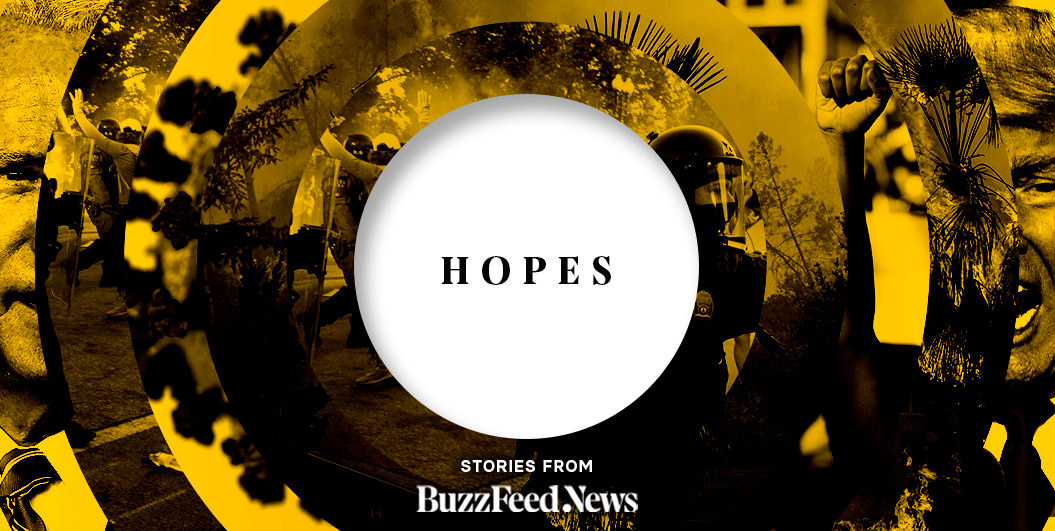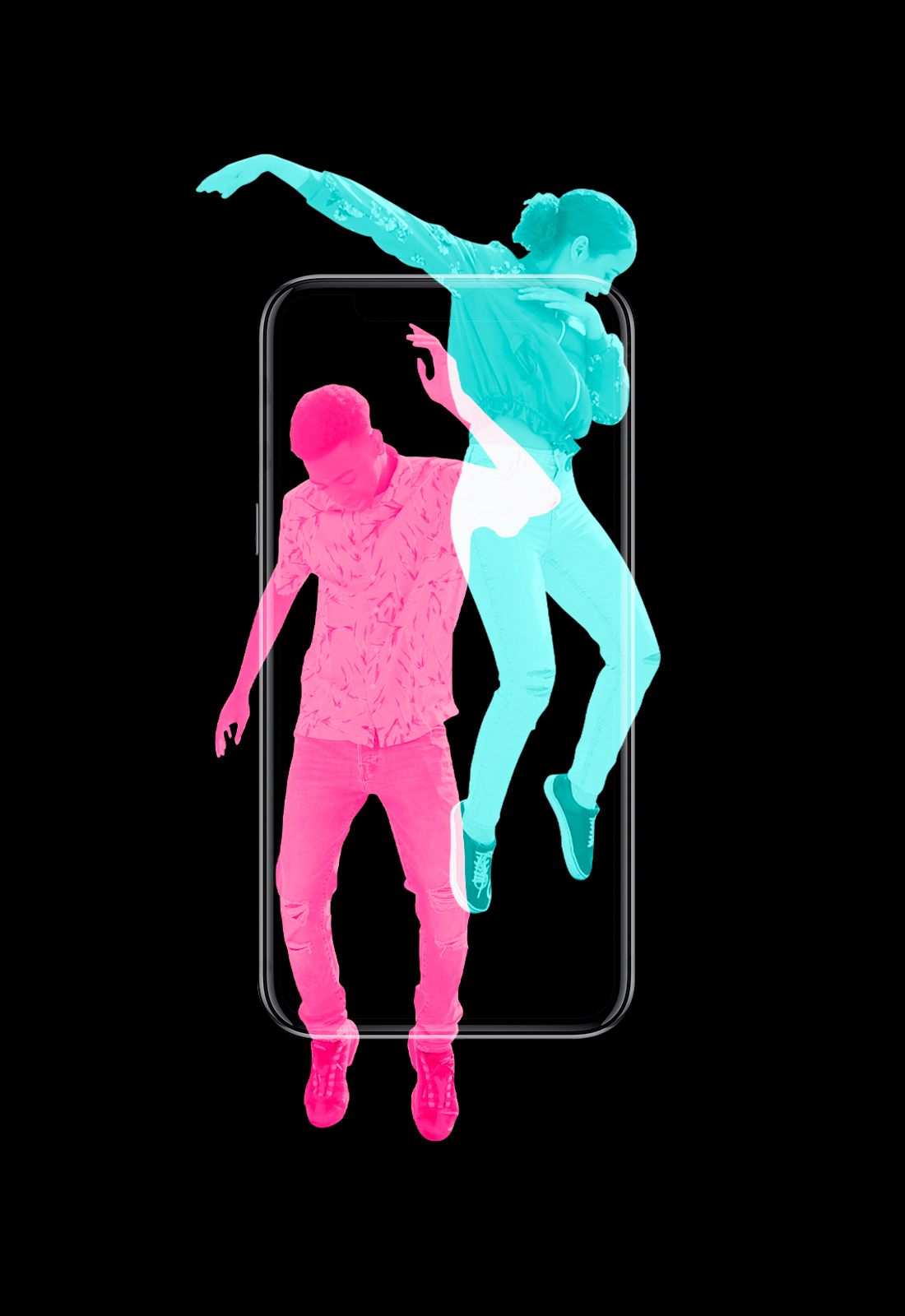I first talked to Marley, a 16-year-old from Colorado with pink and black hair, in February 2019. Our chat was for a story about “e-girls” — an of-the-moment fashion trend on TikTok that was sort of emo girls but 15 years later. Known for their adorably goth outfits and drawing little black hearts on their cheeks in eyeliner, they were a precursor to the current trend of alt girls.
If none of that makes sense, you probably don’t spend enough time on TikTok. But the point is Marley was a cool teen whose username was @thiccbeefcake69, and she could answer my questions about cool teen things.
Although only last year, reporting on TikTok and capturing Gen Z trends was still a sort of novelty. Since there were no academic experts on the finer points of Gen Z culture, you really had to talk to the actual teens.
I’ve interviewed dozens of teens and young adults who fall within the Gen Z cohort, born between the late ‘90s and the early ‘00s. And every time, I’m consistently and pleasantly surprised by the maturity, authority, and care they speak with, oftentimes with more empathy and insight than the adults I talk to. Their TikToks cover political extremism, and racial justice, and the nuances of anti-trans prejudice. They’re never thrown off when I ask for their pronouns and embrace a fluidity in their identities that stems not from uncertainty, but from a very grounded confidence that it’s OK to change and grow. My chat with Marley was one of the first times I realized just how different things had become.
As per our own internal guidelines, BuzzFeed News gets parental permission before speaking to underage teens and often I expect pushback. It’s a big ask to let your child be exposed to the scrutiny that media coverage can bring. But Marley’s mom didn’t hesitate. She told me, quite forthrightly, that Marley had her own voice and could speak for herself. That, as a mom, she didn’t want to stifle that. That was the first thing that stuck with me.
The second was Marley herself. She spoke to me, so clearly, about what it was like to be young but so visible online. The bullying and comments, but also the validation.
“All I’ve really wanted since I was young was to have people enjoy my comedy and my content,” she told me. “And now I have a following of people who think I’m funny and somewhat attractive, and it’s helped me get through thinking I’m not worth anything.”
She talked to me about gatekeeping trends, about her own struggles with mental health and an eating disorder, and her sexuality. About the older men who sent her inappropriate messages. About the double standards for girls on social media. She was honest, and thoughtful, and vulnerable in a very teenage, but very self-aware way.
“People attack me for it, but I don’t care because I feel like if I’m going to have a platform, I want to use it in a way that’s helpful,” she told me.
I remember thinking that when I was 16, with a mouth full of braces and a deep insecurity of anyone recognizing my deep insecurities, I had nowhere near Marley’s ability to articulate my experiences.
That was the first time I thought, you know what, Gen Z is going to be OK.
I don’t mean to hold Marley up as a voice that speaks for an entire generation or as an infallible character. Marley being 16, I’m sure she’d made mistakes, or misspoke, or held beliefs I wouldn’t agree with. I just remember knowing I had some hope for the future. That if this was an example of the generation that would take over after millennials, even if it seems right now that the world is falling apart, that maybe they’d make it through.
There is some evidence that Gen Z is more socially progressive, at least in certain ways, compared to millennials. A survey from Pew Research Center found that 70% of Gen Z wants an “activist” government, compared to 64% of millennials. They’re also far more likely to know someone who uses gender-neutral pronouns and to believe forms should include more than just “man” and “woman” as options. Even Gen Z Republicans are more likely to be socially progressive than older Republicans. Meanwhile, Gen Z and millennials polled about the same as to whether Black Americans are treated less fairly, on whether climate change was caused by humans, and on whether marriage for same-sex couples is a good thing.
I don’t want to paint an entire generation with a single brush. I know that the kids I’ve talked to are only a sample, and my TikTok’s For You page has a bias for cool, gothy LGBTQ+ users, probably because it’s letting me vicariously wonder what I would have been like if I’d spent my teenage years out of the closet and with more self-esteem. The limited available data doesn’t support the common idea that Gen Z is nothing but leftists fighting for social justice.
Charlie Warzel wrote as much for the New York Times in June, after Donald Trump’s rally in Tulsa. A TikTok trend encouraged people to reserve tickets for the rally then not show up, making Trump’s campaign team think turnout would be much higher than reality. The audience indeed only filled a fraction of the BOK Center, making for much-mocked photos of empty seats. Warzel wrote that the TikTok stunt helped create a narrative of exactly who Gen Z is and what they care about.
“Just as millennials were clumsily dubbed the avocado-toast-loving, industry-killing generation, the Gen Z stereotype is an equally reductive portrait: a sardonic, nihilist, climate-change-conquering group of social media vigilantes, righteously trolling for social justice (and roasting millennials in the process),” Warzel wrote. “Gen Z may just save us all, the theory goes — or at least save us from another four years of Donald Trump.”
Warzel wrote that Gen Z’s online presence has been subject to “mythologizing and flattening.” And he’s not wrong. But the column also didn’t feel quite right. While the arguments were sound, it all felt so cynical. Am I naive to err on the side of hope?
Pessimism, as it turns out, is another key to the Gen Z brain. In June, there was a trend of Gen Z making fun of millennials — mocking our allegiance to Harry Potter houses, or our insistence on calling dogs “doggos” and “heckin’ good boys.” While writing about it, I interviewed a TikTok user named Serena, born in 1999, who goes by @glamdemon2004 on the app.
We were trying to suss out the differences between our respective generations when she hit on something that, I think, explains a lot. The defining moments of my formative years were 9/11 and the 2008 financial crisis, but those were barely a blip for Gen Z, who experienced that trauma through the lens of their parents rather than firsthand. Whereas millennials watched institutions crumble around us, Gen Z grew up playing in the rubble.
“Gen Z was never really exposed to the same American dream that millennials were exposed to,” Serena told me. “It’s more a stoic acceptance of the state of the world.”
This points to something that people get wrong about Gen Z — that they’re apathetic. Gen Z is far less interested in the way the world has worked, because it never worked for them. If they are less likely to identify as strictly Republican or Democrat, conservative or liberal, I don’t see that as a sign of apathy but rather a recognition that the traditional political dynamics are useless. It’s not that they don’t care. It’s that they’re looking at a generation-defining election and seeing two guys they don’t like, even if they feel one is relatively less offensive than the other. I don’t think it’s a sign that they won’t vote, or won’t engage, but that as soon as they have the chance, they plan to do away with the whole broken system.
Marcel Danesi, a professor of semiotics and linguistic anthropology at the University of Toronto who studies youth and pop culture, said Gen Z’s attitudes mirror those of past youth movements — anti-war hippies, for example — but with a different tone.
“There’s an urgency difference,” he told me. The climate crisis, for example, has a deadline, and the pandemic is still taking lives. There’s not enough time for gradual change.
He sees just as much optimism in Gen Z as I do. In particular, he said, Gen Z’s antiestablishment tendencies point not to nihilism but to opportunity.
“It’s gone. The cycle has turned,” he said. “There is hope, but that hope is no more in what has been given to us, which is not very good, but in what we can construct and create on our own.”
“Gen Z was never really exposed to the same American dream that millennials were exposed to.”
I see this play out on my TikTik For You page on the regular. For every meme about Trump, I recall a viral sound that repeated “please don’t make me vote for Biden” — not as an endorsement of Trump, but as a desire for a better choice. Or there are the tongue-in-cheek communism memes that, at their heart, are about workers’ rights. Or there’s this one group of young women in North Carolina with devastatingly cool fashion sense who work as abortion clinic escorts, roasting the religious protesters on the daily. Or one I saw the other day that reminded me that feeling guilty for needing a sick day from work is just capitalism trying to embarrass me.
Therein lies my hope. Aside from being hilarious, and thought-provoking, and great at applying at-home hair dye, Gen Z wants to turn whatever scraps we leave them into a more equitable world. How they’ll get there, I’m not sure, but sometimes you just have to believe.
That brings me back to Marley. The third reason she has stuck with me is that only two months after we spoke, she died of a sudden illness. We didn’t have a real personal connection — we’d only talked that one time and I was a viewer of her TikToks — but her loss hit me in a strange way. In addition to the tragedy of someone dying so young, she was a little chunk of the hope I’d been carrying around and that drives my work. Interviewing her changed how I viewed teens and the rest of Gen Z, not just as inheritors of a broken world, but as stewards of what would come next.
There’s another creator, who actually knew Marley from a TikTok social circle, who reminds me of the hope I first found in Marley. They’re 22 and wanted to be identified simply as “Dirt.” I followed them for their videos normalizing body hair and taking psychiatric meds, two things that even as an adult I need reminders are normal things. They also told me they want a fresh start for the world they were born into.
“I think a lot of people in my generation don’t trust the government and don’t trust the police,” they said. “I remember the day Trump got elected, I was like, People are going to die. And people have died. People have had their rights taken away. How am I supposed to support any part of this broken system?”
More than anything, Dirt is emblematic of the earnestness I always see from Gen Z, even as they turn to ironic humor. When we talked by phone, Dirt spoke passionately of performative activism, the corporate role in climate change, gender presentation, cancel culture, and racial allyship. Even if they didn’t use the language someone older or more academic might use, they knew, without question, what is at stake.
“It’s so exhausting,” they said. “We didn’t cause these problems. We didn’t ask for this.”
Dirt also knows that, for better or worse, we’re now all looking to Gen Z.
“There’s such a responsibility that we’re going to be the generation to fix everything,” they said. But Dirt knows the limitations. “I don’t think there’s ever been a generation that’s fixed everything in society without creating new problems,” they told me.
Gen Z is entering adulthood into a world that promises nothing but uncertainty. Mass shootings, a climate crisis that seems less and less likely to ever be countered, and now a global pandemic that has killed more than 200,000 people in the US have defined their young lives. The issues often make me feel hopeless, even if I won’t be alive to see the last of the world burn. But still, when I look at the younger generation, I can’t help but feel that things may get better before they get worse, and if they can’t save us, maybe Gen Z can at least save themselves. ●
This story is part of the BuzzFeed News Hopes Week series, about how people are thinking about the present and future during this chaotic moment in time. Read more here.



